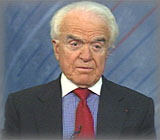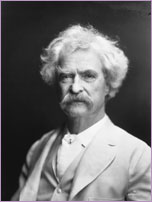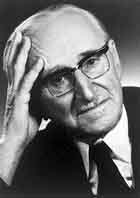Reframing the Intellectual Property Debate
Doc is right about the need to reframe the copyright debate. We’re can’t go forward with arguments that:
- Information is Nonrivalrous
- Thomas Jefferson said so
- Record Companies rip people off
What we need is an answer to Jack Valenti’s Property vs. Theft Paradigm.
The Right Word. #
We should start with Jack’s bread and butter:
“The difference between digital and analog is the difference between lightning and the lightning bug.”
Jack argues that this difference necessitates stronger walls.
We need to demonstrate that the system that Jack advocates removes two of the traditional virtues of private property.
- the ability to transfer and modify
- the incentives of individuals to act on localized knowledge #
Without these features, IP is not quite “property”; and as Mark Twain once said:
“The difference between the right word and almost the right word is the difference between lightning and the lightning bug.
An Efficient Mass-Market for Intellectual Property? #
The ironic thing about Jack’s “Intellectual Property” vendors is that they don’t actually want to sell a product. They rail against Napster and P2P because they make great villains, but what would they think of an efficient market where individuals could trade and sell the IP they purchase?
3-State Bit welcomes Digital Rights Management because he thinks it will allow him to prove that he owns the products he purchased. He imagines selling his under-utilized music online at marginal cost, assuming that first sale doctrine will protect his right to participate in an efficient “virtual property” market. #
Under this theory, I could purchase a movie online, watch it in Pennsylvania on Saturday morning, electronically rent or lend it to my brother in Ontario for the afternoon, and get it back by Saturday night. Hollywood would make the first sale (IPO), but you and I would be able to make the
second and third sale. #
Is this what Jack means when he talks about “Intellectual Property rights”? I don’t think so. Jack is terrified of the prospect of a market in which individuals can send movies “hurtling” across the internet with the click of a mouse,” illegally or otherwise.
The IP that Jack envisions is licensed, not sold and I have my doubts about the ability of licensing to emulate property. #
The Prestige of Centralized Databases. #
As I read the news and listen to people in my local community, I see an increasing number of institutions trying to solve their organizational problems through the application of relational database technology:
- Governments trying to unmask terrorists
- Corporations and Non-profits trying to “manage” relationships with customers and donors
- Churches trying to catalogue the talents of their members
I work as a database programmer, so I’m not trying to say that the technology can’t be beneficial. Companies like google and amazon are a daily reminder of it’s power, but businesses trying to duplicate their success must realize its limitations. Databases assume a fundamental structure. They can not the solve social, linguistic, or business-model problems inherent in an organization.
Who are our Customers? Ask the Database. #
“Applying technology to the wrong strategy or process only results in automating and further entrenching it, making the organization ever better at doing the wrong things.”
Microsoft has an advertisement for their .Net strategy suggests a strategy in which centralized databases transform large conglomerates into efficient “customer-centric” businesses: (paraphrased)
Music Executive: How can I sell a music product when I know so little about my market?
Techie: We’ll get the names of concert fans from a centralized database.
Yes Man: Sweet.
Techie: And Send them an email with our mail server.
Yes Man: Sweet.
Techie: For an offer at our online Store.
Yes Man: Sweet!
If only it were that easy.
Part of the problem is that the offer the music industry is making at their online store is for a subscription that will expire should the fan one day cease to continue paying a monthly fee. The fan is limited to pre-approved playback devices and can not lend or transfer ownership of the music to anyone else. #
Utilities: the Anti Dot-com #
This subscription model is part of Hollywood’s (and Microsoft’s) efforts to become this business cycles’ ideal — a utility, the Anti Dot-Com. They call it “music on demand” or “software as service“, but as they move closer to the utility model, they lose some aspects of the free market implied by their rhetoric of “property”.
A Market that uses Local Information #
Michael Powell likes to watch television with his TiVo and he doesn’t need a centralized database to tell him that his sister might have a common interest in one of the shows he just watched.
That’s because he knows things about his sister that:
- are not,
- should not, and
- can not be codified in a database. #
TiVo’s database may be useful, but it is not perfect and we should not underestimate the value of a network connecting six degrees of friends, family, acquaintances.
Hayek’s Calculation Debate #
Friedrich Hayek recognized the “fragmentation of knowledge” as a insurmountable obstacle to centralized planning and an argument for the necessity of private property.
Private property gives individuals an incentive to act on localized knowledge. It’s the reason why the tips of the tongs at my local grocery’s bagel section are bent.
The original tongs manufacture did not know that its product could meet the demand for “bagel tongs” when modified, but someone in the store did. Will the original manufacturer ever discover this? Probably not. It doesn’t matter; the market worked anyway because there were no legal or technical walls erected to stop it.
We need a “Calculation Debate for the Information Age“; and a market with not just incentives to create, but better incentives to distribute, modify, and improve the products of intellect. #



